Home>Gender and Equality Studies at the Undergraduate College: Student Perspectives
22.07.2025
Gender and Equality Studies at the Undergraduate College: Student Perspectives
Each year, Sciences Po Undergraduate College students complete the Certification in Gender and Equality alongside their Bachelor’s degree. Throughout their studies, those who choose to pursue the Certification engage with gender studies through coursework, field experience, and the writing of Capstone Project, a research or policy-based analysis on a topic of their choice.
From health policy and migrant women’s rights to gender-based violence, artistic representation, and European legislation, the richness and diversity of their academic journeys reflect the vitality of a constantly evolving field: take a closer look at the paths taken by seven recipients.
Paula Rincón Muñiz
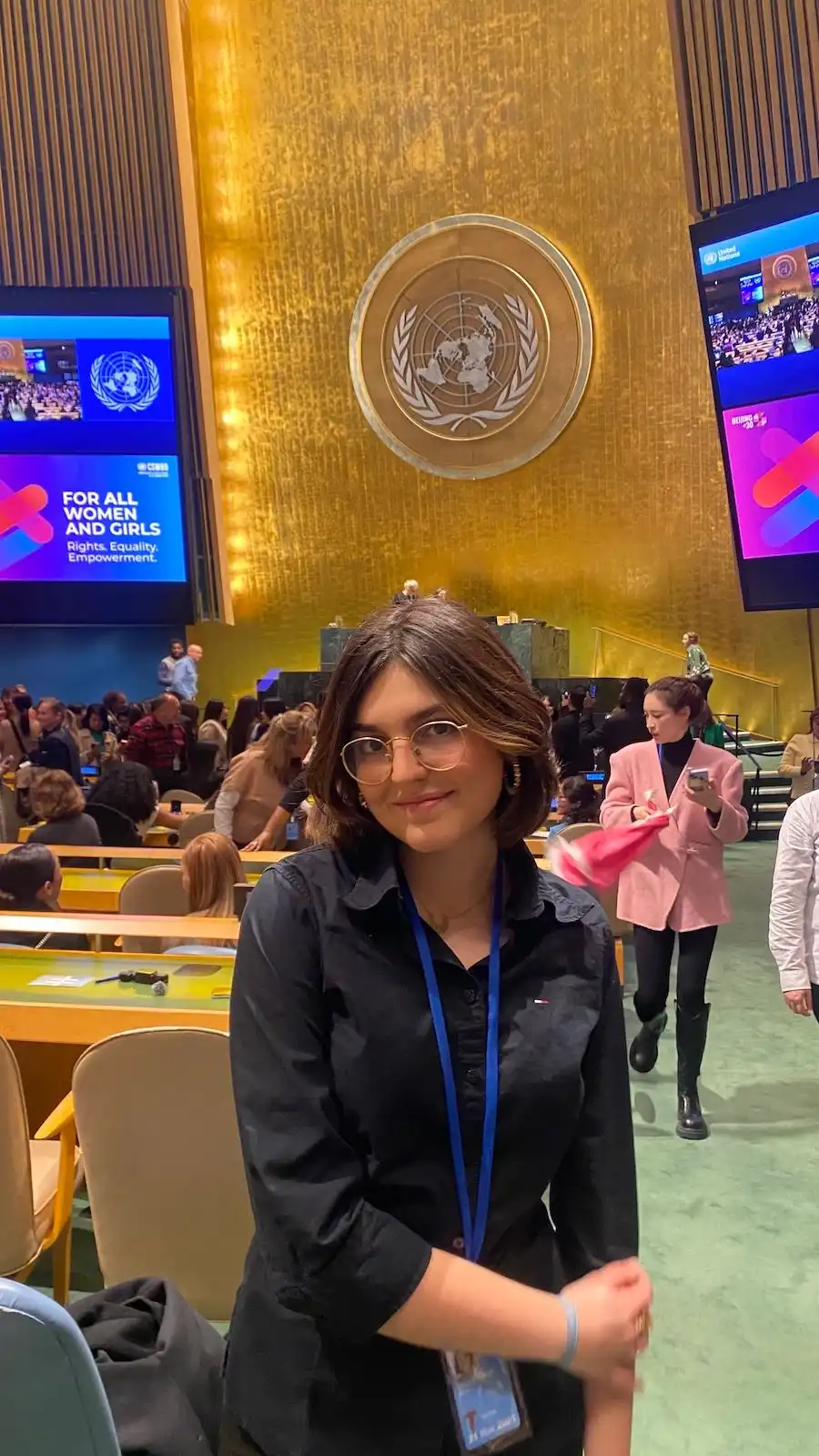
Reims campus, North America minor ; Political Humanities major
Her Capstone: Strengthening the CEDAW to Protect Migrant and Unhoused Women
“Pursuing my Bachelor's degree in a world marked by rising economic inequality and complex patterns of human mobility inspired me to dedicate my Civic Engagement internships to working with migrant and unhoused women in both France and Spain. These experiences offered a lens into the structural conditions that entrench women in cycles of poverty and social exclusion. When facing violence, these women often lack access to the justice system due to systemic barriers such as language, culture, and institutional mistrust, etc. The persistent exclusion of migrant and unhoused women in two democratic European countries compelled me to ask: Do international frameworks truly offer the tools to safeguard these women’s rights and dignity? This question was the driving force behind my Capstone Project, in which I assess the effectiveness of the Convention on the Elimination of all Forms of Violence Against Women (CEDAW), adopted in 1979 by the United Nations General Assembly. My research examines gaps between policy and practice, uncovering that the CEDAW remains inconsistent in its implementation. I put forward a set of policy recommendations to strengthen its mandate and scale up global ambition. In a global order that often criminalises mobility while relying on the exploitation of migrant labour – particularly women’s care work – I also explore how identity politics can become a tool of resistance and survival for women on the move. Through this work, I hope to contribute to reimagining systems of protection rooted in justice, equity, and care.”
Her advice for those going for the Certification in Gender and Equality: The quest for a feminist future is what first drew me to politics and to apply to Sciences Po. This inevitably led me to seize every possible opportunity to learn and grow once I set foot on the Reims campus: over the past three years, I have joined diverse student initiatives, taken over five courses on gender and devoured every intersectional feminist book that I could lay my hands on. Driven by a multifaceted view of advocacy and building off this theoretical framework, I was able to push for ambitious action towards gender equality in United Nations conferences such as the 69th session of the Commission on the Status of Women (CSW69) and the United Nations Climate Change Conference (COP29), proving how feminism can be a force for systemic change. As we observe the backsliding of gender rights on the international stage, Certifications like this one are not only essential tools for progress, but also powerful reminders that when women are equipped to lead, our world, our institutions, and our communities thrive.
Matisse Sapotille
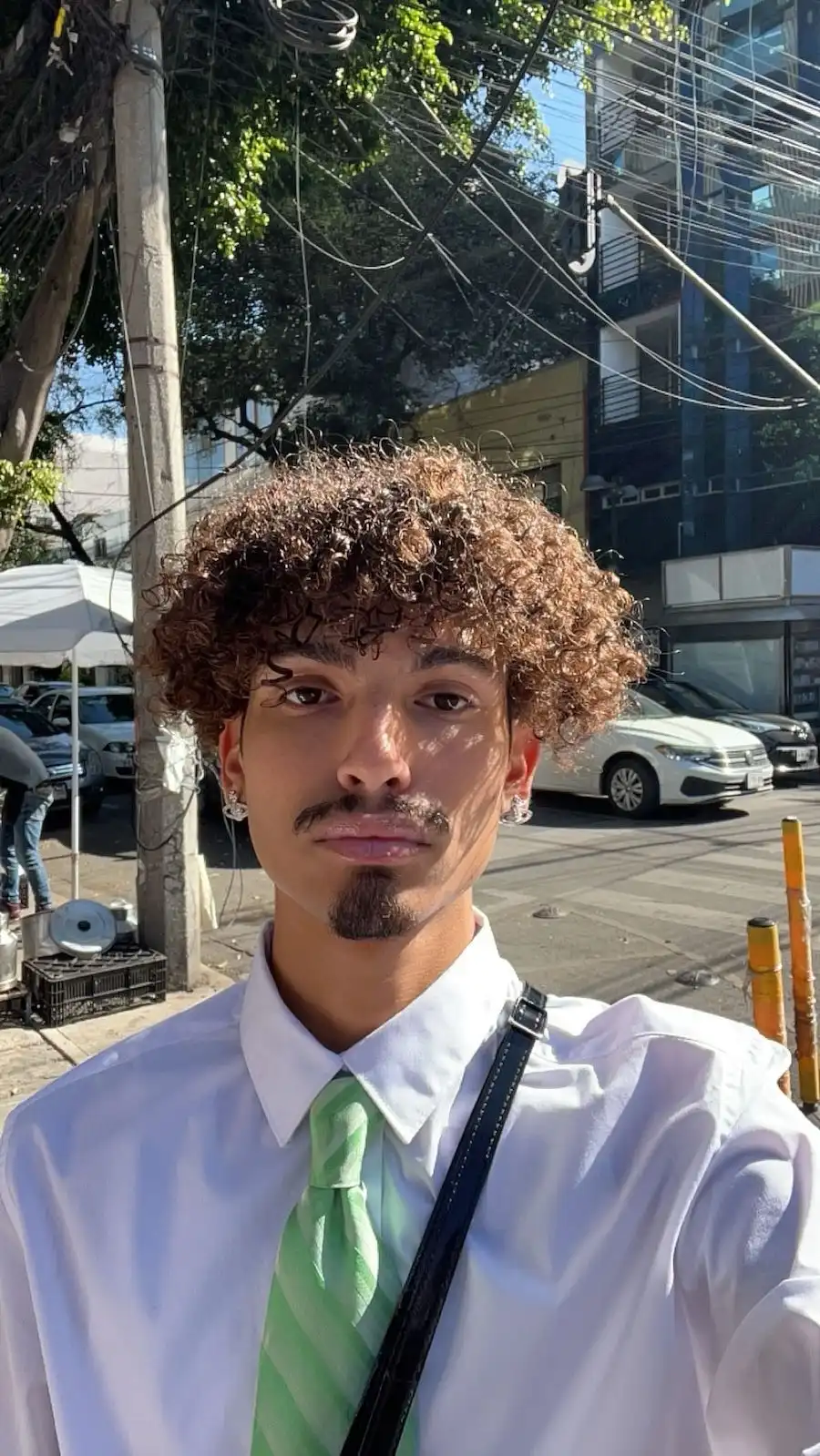
Paris campus, Economics and Society major
His Capstone: Advancing Sexual Health in France
“After my fieldwork at a community sexual health centre serving LGBTI+ people and sex workers, I aimed to highlight the importance of dedicated health services for specific communities. While working on my Capstone Project, I also explored additional strategies, such as extending care to patients without social security and developing comprehensive prevention policies, that could contribute to improving sexual health across France.”
His advice for those going for the Certification in Gender and Equality: Stay open to the world around you, get out of your comfort zone. The topics covered in gender studies courses are wide-ranging, so take the opportunity to learn about everything!
Priscillia Mutatayi
Reims campus, Africa minor ; Political Humanities major
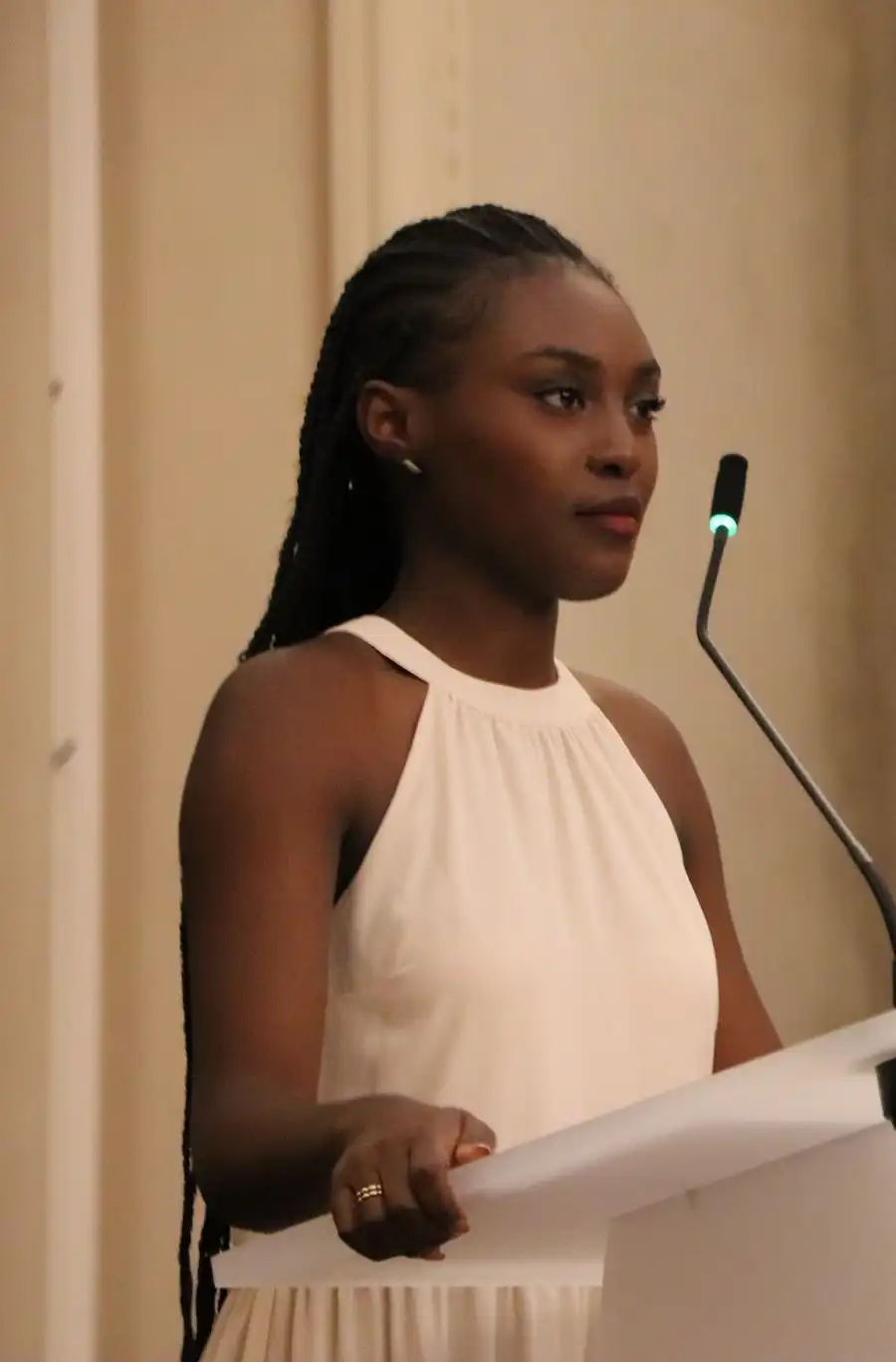
Her Capstone: Supporting New Immigrant Women Survivors of Female Genital Mutilation
“Moved by the urgency and complexity of supporting migrant women who have undergone female genital mutilation (FGM), I chose to explore this topic at the end of my civic internship with the Groupe pour l'Abolition des Mutilations Sexuelles, des Mariages Forcés et autres pratiques néfastes (in English: Group for the Abolition of Sexual Mutilation, Forced Marriage and Other Harmful Practices). This experience inspired me to establish a branch of the association at Sciences Po, now officially recognised as a student initiative, to continue advocating within our institution. Through this Capstone Project, I aimed to demonstrate that FGM is not solely a distant issue, often stereotyped as “exotic” or “barbaric”, but a reality that affects us here. These practices know no borders and manifest locally, through administrative neglect, medical failings, inadequate professional responses, and the dehumanising complexities of the asylum system. My work proposes practical measures for holistic care: these women are not seeking pity or charity, but demand respect for their dignity, through support that matches the severity of their trauma.”
Her advice for those going for the Certification in Gender and Equality: Stay curious and open: a diversity of perspectives is the key to understanding gender issues. But open-mindedness is not enough, it must be accompanied by attentive listening, ready to challenge your certainties! It's this combination of curiosity and listening that drives forward thinking and nurtures real change.
Sarina Soleymani
Menton campus, Mediterranean-Middle East minor ; Political Humanities major
Her Capstone: Does life imitate art? The Political Uses and Abuses of Art by Iranian and Palestinian Women
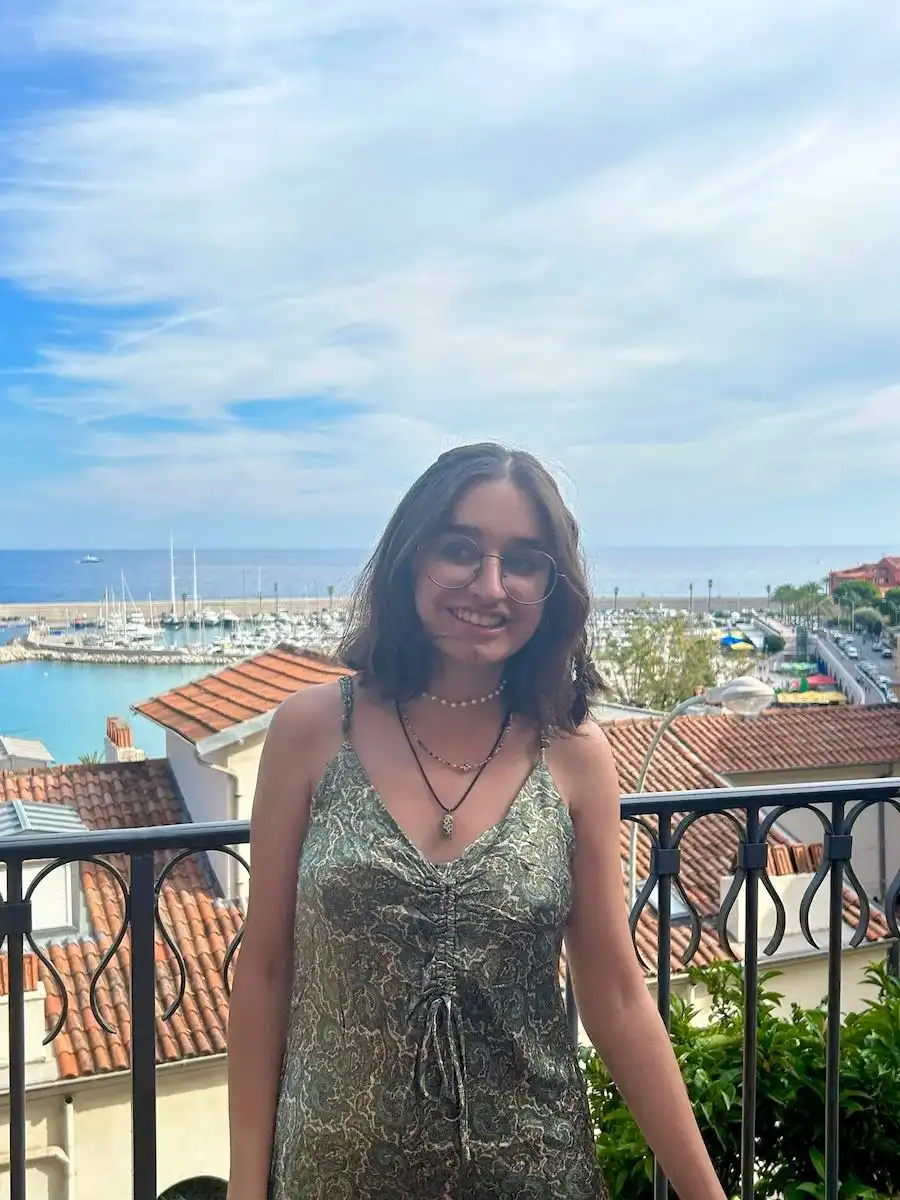
“My Capstone explores how Iranian and Palestinian women use art to assert control over their own representations, build solidarity around their causes, and engage politically on both local and international levels, while also addressing the challenges they encounter throughout these processes. This emphasises the vital importance of ensuring unrestricted access to artistic practices for these communities by shedding light on the humanitarian and socio-political aspects of art – particularly its relationship with power and knowledge, as well as the role played by international and private actors. As an Iranian woman, I was personally drawn to this subject, having witnessed firsthand during my undergraduate studies how art was employed by my community during the “Women, Life, Freedom” social movement, alongside the ongoing struggles for freedom of artistic expression. Simultaneously, I attended a course taught by anthropologist Marion Slitine, which examined similar issues in the Palestinian context, such as censorship, the politicisation of identity, art as a form of resistance, building solidarity through humanisation and authentic representation, and audience bias, encouraging me to explore these themes together through a gender lens.”
Her advice for those going for the Certification in Gender and Equality: Be emotionally invested in the topic! This will ensure you delve deeper into your research, engage with more people, take more courses, and genuinely enjoy pursuing the “Gender and Equality” Certification. Remember, questions around gender and equality affect every one of us, and exploring these personal connections helps you realise the importance of educating yourself and fighting for these causes.
Katharina Gummich

Nancy campus, European Union, Franco-German partnership minor ; Political Humanities major
Her Capstone: Improving EU Responses to Gender-Based Violence
“Drawing on my campus’s focus on European affairs and my academic interest in gender justice, my Capstone Project explores how the European Union can improve its strategies for preventing and responding to gender-based violence. I analysed recent legal developments, particularly Directive 2024/1385, and identified ongoing shortcomings, such as limited protections for migrant women and a lack of adequate funding. In response, I put forward concrete policy recommendations to strengthen the EU’s internal framework for tackling gender-based violence, in line with its stated commitment to eliminating gender discrimination.”
Her advice for those going for the Certification in Gender and Equality: With its wide range of topics, you’re sure to find your place and passion within this programme!
Maud Niemi
Le Havre campus, Asia-Pacific minor ; Economics and Society major ; Dual bachelor's degree with Keio University
Her Capstone: Rethinking Public Public Funding to Promote Empowerment of Women Migrant and Marginalised Communities through Feminist Associations: A Case Study in France
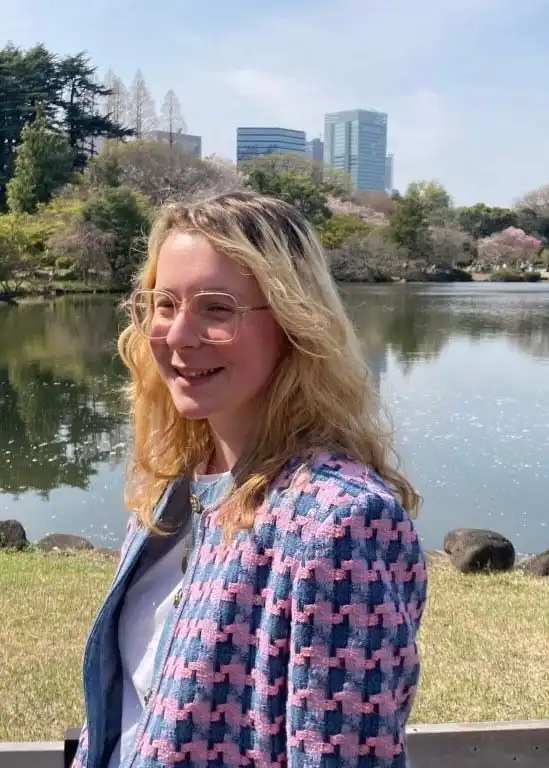
“In my public policy paper, I sought to explore how local governments could democratise funding for feminist organisations that support migrant women, who are all too often rendered invisible and alienated from the very struggles intended to assist them. Currently, local funding for associations in France depends on the choices of the political majority during the annual municipal budget vote. The most activist organisations are constantly required to justify their value, often receiving only minimal funding. I witnessed this firsthand while working as a political collaborator for the municipal opposition. I aimed to rethink this model by exploring quadratic funding in my paper: a participatory mechanism whereby every contribution, even a symbolic one (such as 50 cents), is amplified by public funds. This means that the more people support an organisation, the more funding it receives. This would transform donations into a genuine form of voting power. It would allow the women these organisations aim to serve to take ownership of the process and gain political influence, as they are frequently excluded from traditional funding mechanisms and activist spaces, which are often dominated by wealthier interests and a form of intellectual feminism that is too detached from lived realities.”
Her advice for those going for the Certification in Gender and Equality: I believe it is essential to experience both institutional feminism and grassroots activism during the civic engagement component of the Gender Certification. Our fieldwork continually sharpens and deepens our reflections by confronting us with the realities that make our feminism more lucid, incisive, and intersectional. Even though institutional feminism may be slow to deliver progress, it remains vital for systemic change. Activism, institutions, and academic training are the three pillars of systemic transformation, but they can only be truly effective if they inform and reinforce one another. At present, they are often too disconnected. The Gender Certification offers us a rare and valuable opportunity to bridge this gap, connecting our theoretical knowledge with real-world (grassroots and institutional) experiences that make us more resilient, effective, and grounded feminist activists.
Maylis Lozouet
Poitiers campus, Latin America-Caribbean minor, Political Humanities major
Her Capstone: Tackling Domestic Violence in France
"I chose to explore approaches to preventing domestic violence in France
following my first-year civic internship at the Foyer Louise Labé, which takes in women who are victims/survivors of domestic violence in the twentieth arrondissement of Paris. In my Capstone, I wanted to explore the link between the feminist and militant origins of actions addressing domestic violence and its appropriation by the State through public policies. My aim was to show the need to devise public policies to combat domestic violence that incorporate a definition of domestic violence based on feminist analysis."
Her advice for those going for the Certification in Gender and Equality:
What enriched and challenged me the most were the practical cases of gender-based and sexual violence that I came across during my student career through volunteer placements and feminist student associations. Doing the Certification in Gender and Equality means building a bridge between theories and real-life situations of violence.
More
- Delivered jointly by the Sciences Po’s Gender Studies Programme and the Undergraduate College, the Certification in Gender and Equality allows Bachelor students to enhance their skills on issues related to gender, and to address inequalities and discrimination between women and men.
- Sciences Po's Undegraduate College comprises seven campuses: Dijon, Le Havre, Menton, Nancy, Paris, Poitiers and Reims. All students follow a core curriculum in the social sciences. They choose a multidisciplinary major in second year and pursue their major abroad in third year. Programmes on all campuses lead to a Bachelor of Arts degree.